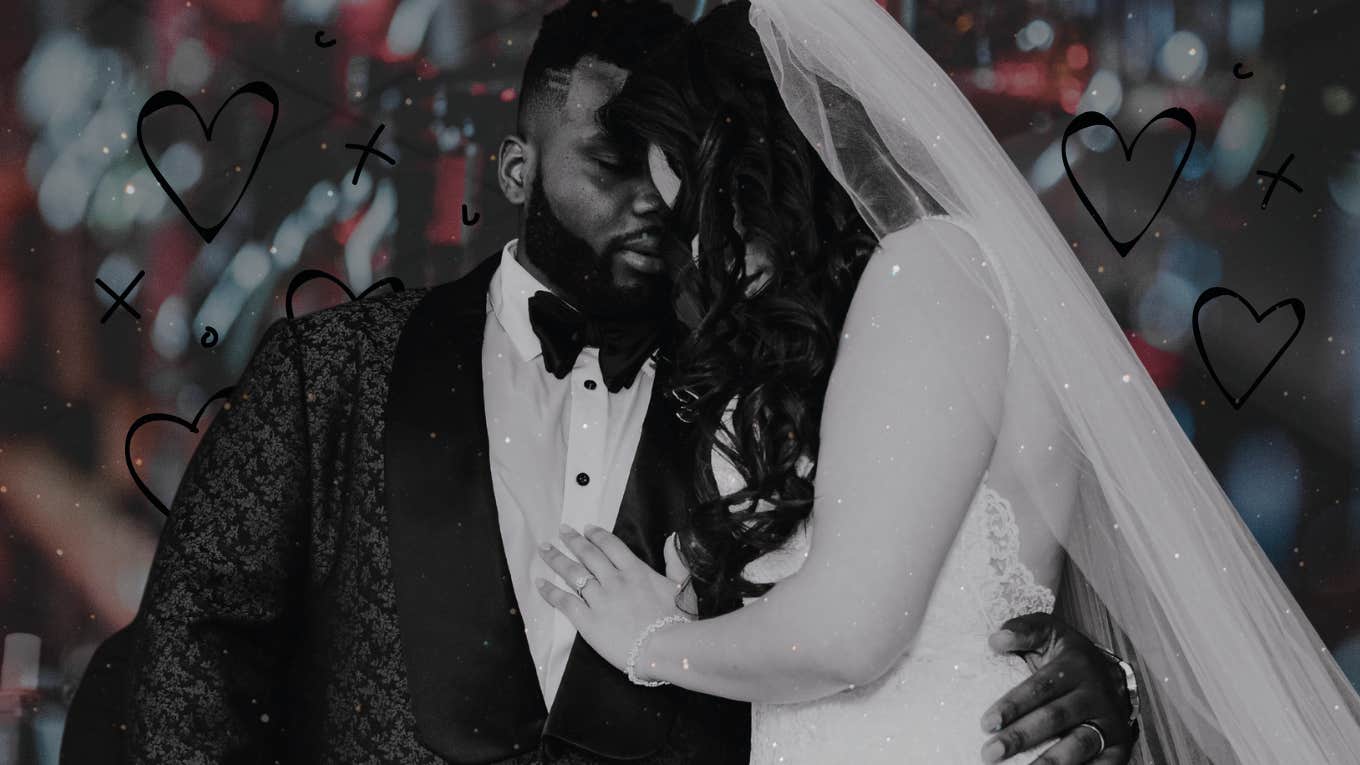Why I Hid That I Was Married To An Alcoholic For 28 Years
It wasn't my burden to bear for him.
 Clam Lo, Gilmar Ozio | Canva
Clam Lo, Gilmar Ozio | Canva Now and then, we receive notification that someone has started joining our website — a site for the partners of alcoholics, but they have not completed the process.
We typically send a courtesy email, at this point, to see if there are any problems we can help with. A couple of years back, we were in contact with someone from the United States.
The woman in question told us that she had wanted to join us, but didn't want any information to appear on her credit card statement. This was by no means an unusual request, but one that always causes us sadness.
The secret world of the alcoholic has been covered many times, but those closest to them seem bound into an even deeper code of silence.
A world in which even reaching out for help (as this dear lady was doing) feels shameful, difficult, and requires anonymity. The alcoholic might deny their problem but the telltale signs are fairly easy to read ... the smell, the gait, the changed demeanor, and erratic behavior are hard to hide on an ongoing basis.
However, the significant other of an alcoholic may well be the woman who serves you in a shop, the man who sorts out your insurance, the mother taking her kids to the park — all going about their lives happily and normally, but hiding their daily struggles under a veil of secrecy.
These people are virtually buried alive in a world where substance abuse is killing security and peace — a world where all respect and intimacy seem to rot into decay.
The world of these partners is regularly filled with crisis, chaos, and a growing sense of relationship disintegration.
There is a movement, however, in which people in recovery are beginning to stand up and be counted; a sort of "recovery pride," where alcoholics and drug addicts are throwing off their cloaks of shame and coming out of the closet. According to the U.S. Department of Health & Human Services, about 20.5 million Americans are recovering alcoholics.
"I was struggling with addiction and now I am doing my best to break free," is a great message to stand for, and I pray that society responds warmly with support and encouragement.
How much more should those of us living alongside these people be free to vocalize our journey: "I was struggling to live with an addict/alcoholic and I am doing my best to break free from my secret world of silence." Let this be a movement too. And let us give it our unwavering support.
In my 28 years of living with a problem drinker, I had some very powerful reasons (so, I thought) to hide our situation.
For starters, I was working in the Christian church. In the circles I moved in there was an expectation to have gained victory over all these sorts of problems. How could I admit that, although the love of God was far more real to me than it had ever been, my personal family life was in chaos?
And to make matters worse, I was also working as a therapist! Who would want to come to me for help when I didn't seem able to help myself or my family? In short, I felt I should have been able to fix this mess — to stop my husband from drinking, sort out his issues, and save my family from the awfulness of what was happening.
But, I couldn't and I didn't. In the end, I stopped looking at what I couldn't achieve and started concentrating on what I could. I found a lot more empowerment and change than I expected and learned, with forethought and practice, that I could certainly contain even if I was not able to restrain.
Above all, I had to realize that a partner's drinking and drug taking is not our fault.
It's okay to speak out. It's okay to tell it how it is. It is okay to come out of the closet. That said, do it wisely! Choose a friend or family member who loves you enough to listen (carefully), love, and support you.
And if you are that friend or relative, be aware that such disclosures take immense courage. This person you love has been attempting, day after day, to survive their really difficult circumstances.
If you have not reached out for a long time, realize that bringing light into your darkened situation happens best if done a little at a time, with due consideration of possible consequences. To tell a loved one about your struggles will hopefully engender support, and compassion, and remove the terrible isolation you have been living in.
 Pexels / KATRIN BOLOVTSOVA
Pexels / KATRIN BOLOVTSOVA
Remember, too, that disclosure is not the same as exposure. The latter just increases vulnerability and shame. (Believe me, I know how tempting it is to decide honesty is the best policy and descend into cataloging the litany of faults that are the daily portion of our alcoholic partners. There is much to tell ... mostly the bad).
However, please try to avoid swinging from complicit silence to reckless revelation. Your alcoholic loved one already carries huge amounts of shame, and exposing his problem inappropriately or nastily will almost certainly trigger his drinking button ... along will come yet another ghastly scenario for you to deal with.
Be honest, but also be wise and kind. I must also note that if you live with a violent and aggressive drunk it's probably best to start the journey of disclosure with a professional, such as a doctor or therapist, because you may require specialist help and protection. Do not take unnecessary risks, but do not keep silent any longer.
Drug and alcohol addiction is incredibly common.
The Substance Abuse and Mental Health Services Administration (SAMHSA) reports that approximately 20.3 million people above the age of 12 have suffered from a substance use disorder in the past year. According to SAMHSA’s 2018 National Survey on Drug Use and Health, close to 2 million people of the same age bracket have suffered from opioid use disorders and 14.8 million from alcohol use disorders.
If you or someone you know is suffering from addiction, there are resources to get help.
The process of recovery is not linear, but the first step to getting better is asking for help. For more information, referrals to local treatment facilities and support groups, and relevant links, visit SAMHSA’s website. If you’d like to join a recovery support group, you can locate the nearest Alcoholics Anonymous or Narcotics Anonymous meetings near you. Or you can call SAMHSA’s National Helpline at 1-800-799-7233, which is a free 24/7 confidential information service in both English and Spanish. For TTY, or if you’re unable to speak safely, call 1-800-487-4889.
John McMahon has a PhD in Psychology and was a senior lecturer on alcohol and drug studies.
Lou Lewis is a Counselor and author of the book No Easy Answers.

